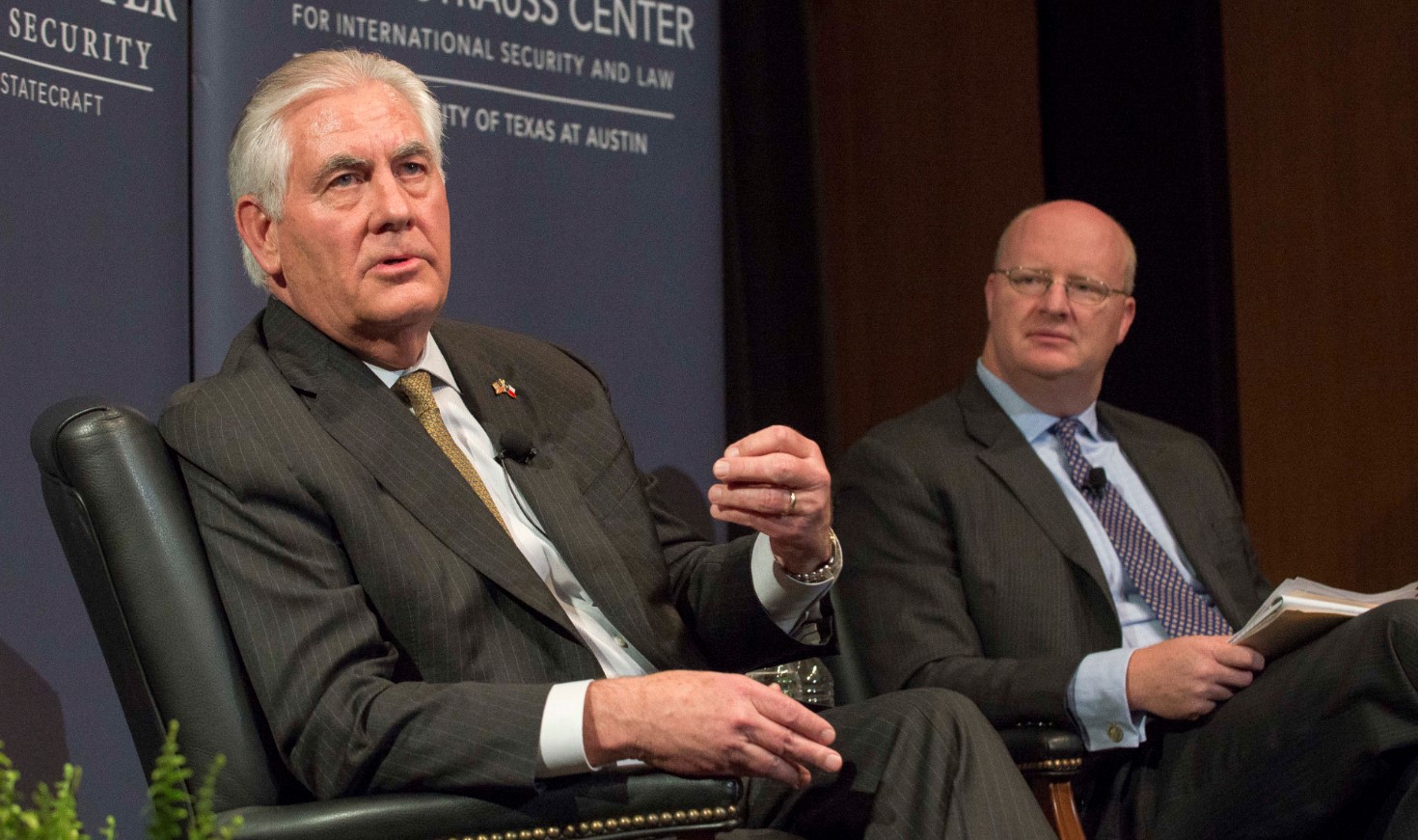On Feb. 1, 2018, U.S. Secretary of State Rex Tillerson addressed UT students and faculty on U.S. engagement in the Western hemisphere, before embarking on his “diplomatic mission” to Latin American and the Caribbean. He identified economic growth, security and democratic governance as the “three pillars of engagement” for the State Department’s strategy for regional stability.
To reinforce these three pillars, Tillerson advocated for the integration of energy resources, such as crude oil, natural gas and electricity. He said the “energy renaissance” is already underway and this “energy force” will support the U.S. economy as the “most competitive and vibrant economy in the world”.
With the world’s largest oil reserves, Venezuela is a key player for driving the “energy renaissance” in Latin America, although it has descended into a turbulent political and economic crisis in recent years.
“The great tragedy is that although Venezuela could be one of the most prosperous countries in region, it is one of the most [sic] poorest in the world,” Tillerson said.
For the secretary of state, Venezuela is the key to Tillerson’s “pillars of engagement”. However, Venezuela’s oil industry has been barred from private investment since it was nationalized in 1999, after the late president Hugo Chavez took office. Chavez’s predecessor, Nicolas Maduro, has continued with Chavez’s policies and has vocally denounced the privatization of Venezuelan oil.
“Venezuela stands in stark contrast to the future of stability pursued by so many others in the hemisphere,” Tillerson said. “The corrupt and hostile regime of Nicolas Maduro in Venezuela clings to a false dream and antiquated vision for the region that has already failed its citizens.”
In recent years, the falling price of oil has severely constrained Maduro’s socialist spending that began with Chavez’s presidency. The government has depleted its revenues and has been unable to sustain social spending. Maduro has maintained his power, although Venezuela has descended into political and economic chaos. Venezuela’s capital, Caracas, is now the world’s most violent city with over 115 homicides for every 100,000 inhabitants per year. Severe inflation has brought the economy to a grinding halt, and has made basic goods expensive and inaccessible to Venezuelans.
On July 30, 2017, the Maduro government held a vote to establish a national constituent assembly to form a body of officials to write a new constitution. Government officials said the constituent assembly would “bring peace to the conflicted country”, according to the Washington Post.
Opinion polls had reported only 15 percent of registered voters had planned to vote although on voting day, government officials reported 8.1 million voters came to the polls. Nonetheless, the Maduro government recognized the results in favor of the pro-government constituent assembly.
The United States and other Latin American countries refused to recognize the results of the assembly. Tillerson firmly stated the U.S. has not changed its position regarding Venezuela’s constitutional change. He added that the U.S. has placed sanctions on more than 40 officials from the Maduro regime. Other international actors such as Canada and the European Union (EU) have joined the U.S. and have also placed human rights sanctions on the regime.
“We encourage all nations to support the Venezuelan people,” Tillerson said. “We must prioritize democratic values.”
Considering Latin America’s history with violent regime change, Tillerson stressed that U.S. officials are not advocating for the removal of President Maduro. However, Tillerson added, “Maduro could choose to just leave.”
“If he is not re-elected by the people, so be it,” Tillerson said. “And if the kitchen gets a little too hot for him, I’m sure that he’s got some friends over in Cuba that can give him a nice hacienda on the beach and he can have a nice life over there.”
UPDATE: Since this article was written, Secretary Tillerson was terminated. It will be interesting to see how the agenda objectives laid out by Tillerson in this article will manifest in policy and action through the next secretary to take office.


One reply on “Tillerson on the Venezuelan Crisis and the Future of Regional Stability”
The problem with this theory is that it appears to go against everything we”ve known about Tillerson. Tillerson has not been a voice in Trump”s administration for this sort of action. On the contrary, with Tillerson”s background as a chairman of Exxon, Tillerson has been a deal-maker. When Trump makes threats against Kim in NK, it was Tillerson who was pushing for negotiations to try to reach a deal. Not too long ago, we were hearing that the appointment of Tillerson was a sign of Trump”s collusion with the Russians because Tillerson had made deals with the Russians while at Exxon. Tillerson had been trying to clear out the Hillary neocons from the State Dept. Overall, the impression was that Tillerson was acting as Trump”s pooper-scooper. Going along behind Trump and trying to clean up Trump”s messes. And the fact that he was replaced by a belligerent political hick like Pompeo who”s been much more vocal about wanting war and conflict and Syria also seems to work against this theory. The general trend of all of these changes in recent weeks is that Trump is getting rid of the people who wanted to negotiate and is replacing them with a lot of pro-war hawks. So, this becomes yet another charge made without any evidence, and in this case one that seems to go against everything we could see in the month”s previous.